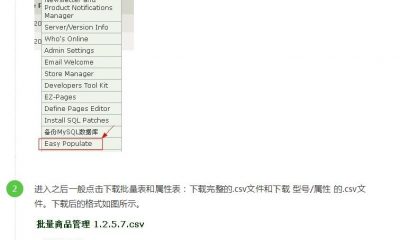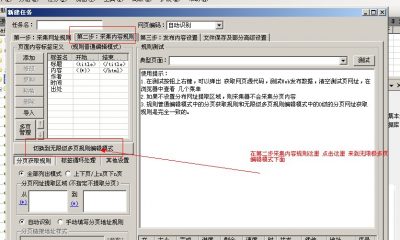有关SurfaceView相关的内容今天Android123继续延用系统的示例类VideoView来让大家深入了解Android平台的图形绘制基础类的实现原理。大家可能会发现VideoView类的控制方面无法改变,我们可以通过重构VideoView类来实现更个性化的播放器。
public class VideoView extends SurfaceView implements MediaPlayerControl {
private String TAG = "VideoView";
// settable by the client
private Uri mUri;
private int mDuration;
// all possible internal states
private static final int STATE_ERROR = -1;
private static final int STATE_IDLE = 0;
private static final int STATE_PREPARING = 1;
private static final int STATE_PREPARED = 2;
private static final int STATE_PLAYING = 3;
private static final int STATE_PAUSED = 4;
private static final int STATE_PLAYBACK_COMPLETED = 5;
// mCurrentState is a VideoView object’s current state.
// mTargetState is the state that a method caller intends to reach.
// For instance, regardless the VideoView object’s current state,
// calling pause() intends to bring the object to a target state
// of STATE_PAUSED.
private int mCurrentState = STATE_IDLE;
private int mTargetState = STATE_IDLE;
// All the stuff we need for playing and showing a video
private SurfaceHolder mSurfaceHolder = null;
private MediaPlayer mMediaPlayer = null;
private int mVideoWidth;
private int mVideoHeight;
private int mSurfaceWidth;
private int mSurfaceHeight;
private MediaController mMediaController;
private OnCompletionListener mOnCompletionListener;
private MediaPlayer.OnPreparedListener mOnPreparedListener;
private int mCurrentBufferPercentage;
private OnErrorListener mOnErrorListener;
private int mSeekWhenPrepared; // recording the seek position while preparing
private boolean mCanPause;
private boolean mCanSeekBack;
private boolean mCanSeekForward;
public VideoView(Context context) {
super(context);
initVideoView();
}
public VideoView(Context context, AttributeSet attrs) {
this(context, attrs, 0);
initVideoView();
}
public VideoView(Context context, AttributeSet attrs, int defStyle) {
super(context, attrs, defStyle);
initVideoView();
}
@Override
protected void onMeasure(int widthMeasureSpec, int heightMeasureSpec) {
//Log.i("@@@@", "onMeasure");
int width = getDefaultSize(mVideoWidth, widthMeasureSpec);
int height = getDefaultSize(mVideoHeight, heightMeasureSpec);
if (mVideoWidth > 0 && mVideoHeight > 0) {
if ( mVideoWidth * height > width * mVideoHeight ) {
//Log.i("@@@", "image too tall, correcting");
height = width * mVideoHeight / mVideoWidth;
} else if ( mVideoWidth * height < width * mVideoHeight ) {
//Log.i("@@@", "image too wide, correcting");
width = height * mVideoWidth / mVideoHeight;
} else {
//Log.i("@@@", "aspect ratio is correct: " +
//width+"/"+height+"="+
//mVideoWidth+"/"+mVideoHeight);
}
}
//Log.i("@@@@@@@@@@", "setting size: " + width + ‘x’ + height);
setMeasuredDimension(width, height);
}
public int resolveAdjustedSize(int desiredSize, int measureSpec) {
int result = desiredSize;
int specMode = MeasureSpec.getMode(measureSpec);
int specSize = MeasureSpec.getSize(measureSpec);
switch (specMode) {
case MeasureSpec.UNSPECIFIED:
/* Parent says we can be as big as we want. Just don’t be larger
* than max size imposed on ourselves.
*/
result = desiredSize;
break;
case MeasureSpec.AT_MOST:
/* Parent says we can be as big as we want, up to specSize.
* Don’t be larger than specSize, and don’t be larger than
* the max size imposed on ourselves.
*/
result = Math.min(desiredSize, specSize);
break;
case MeasureSpec.EXACTLY:
// No choice. Do what we are told.
result = specSize;
break;
}
return result;
}
private void initVideoView() {
mVideoWidth = 0;
mVideoHeight = 0;
getHolder().addCallback(mSHCallback);
getHolder().setType(SurfaceHolder.SURFACE_TYPE_PUSH_BUFFERS);
setFocusable(true);
setFocusableInTouchMode(true);
requestFocus();
mCurrentState = STATE_IDLE;
mTargetState = STATE_IDLE;
}
public void setVideoPath(String path) {
setVideoURI(Uri.parse(path));
}
public void setVideoURI(Uri uri) {
mUri = uri;
mSeekWhenPrepared = 0;
openVideo();
requestLayout();
invalidate();
}
public void stopPlayback() {
if (mMediaPlayer != null) {
mMediaPlayer.stop();
mMediaPlayer.release();
mMediaPlayer = null;
mCurrentState = STATE_IDLE;
mTargetState = STATE_IDLE;
}
}
private void openVideo() {
if (mUri == null || mSurfaceHolder == null) {
// not ready for playback just yet, will try again later
return;
}
// Tell the music playback service to pause
// TODO: these constants need to be published somewhere in the framework.
Intent i = new Intent("com.android.music.musicservicecommand");
i.putExtra("command", "pause");
mContext.sendBroadcast(i);
// we shouldn’t clear the target state, because somebody might have
// called start() previously
release(false);
try {
mMediaPlayer = new MediaPlayer();
mMediaPlayer.setOnPreparedListener(mPreparedListener);
mMediaPlayer.setOnVideoSizeChangedListener(mSizeChangedListener);
mDuration = -1;
mMediaPlayer.setOnCompletionListener(mCompletionListener);
mMediaPlayer.setOnErrorListener(mErrorListener);
mMediaPlayer.setOnBufferingUpdateListener(mBufferingUpdateListener);
mCurrentBufferPercentage = 0;
mMediaPlayer.setDataSource(mContext, mUri);
mMediaPlayer.setDisplay(mSurfaceHolder);
mMediaPlayer.setAudioStreamType(AudioManager.STREAM_MUSIC);
mMediaPlayer.setScreenOnWhilePlaying(true);
mMediaPlayer.prepareAsync();
// we don’t set the target state here either, but preserve the
// target state that was there before.
mCurrentState = STATE_PREPARING;
attachMediaController();
} catch (IOException ex) {
Log.w(TAG, "Unable to open content: " + mUri, ex);
mCurrentState = STATE_ERROR;
mTargetState = STATE_ERROR;
mErrorListener.onError(mMediaPlayer, MediaPlayer.MEDIA_ERROR_UNKNOWN, 0);
return;
} catch (IllegalArgumentException ex) {
Log.w(TAG, "Unable to open content: " + mUri, ex);
mCurrentState = STATE_ERROR;
mTargetState = STATE_ERROR;
mErrorListener.onError(mMediaPlayer, MediaPlayer.MEDIA_ERROR_UNKNOWN, 0);
return;
}
}
public void setMediaController(MediaController controller) {
if (mMediaController != null) {
mMediaController.hide();
}
mMediaController = controller;
attachMediaController();
}
private void attachMediaController() {
if (mMediaPlayer != null && mMediaController != null) {
mMediaController.setMediaPlayer(this);
View anchorView = this.getParent() instanceof View ?
(View)this.getParent() : this;
mMediaController.setAnchorView(anchorView);
mMediaController.setEnabled(isInPlaybackState());
}
}
MediaPlayer.OnVideoSizeChangedListener mSizeChangedListener =
new MediaPlayer.OnVideoSizeChangedListener() {
public void onVideoSizeChanged(MediaPlayer mp, int width, int height) {
mVideoWidth = mp.getVideoWidth();
mVideoHeight = mp.getVideoHeight();
if (mVideoWidth != 0 && mVideoHeight != 0) {
getHolder().setFixedSize(mVideoWidth, mVideoHeight);
}
}
};
MediaPlayer.OnPreparedListener mPreparedListener = new MediaPlayer.OnPreparedListener() {
public void onPrepared(MediaPlayer mp) {
mCurrentState = STATE_PREPARED;
// Get the capabilities of the player for this stream
Metadata data = mp.getMetadata(MediaPlayer.METADATA_ALL,
MediaPlayer.BYPASS_METADATA_FILTER);
if (data != null) {
mCanPause = !data.has(Metadata.PAUSE_AVAILABLE)
|| data.getBoolean(Metadata.PAUSE_AVAILABLE);
mCanSeekBack = !data.has(Metadata.SEEK_BACKWARD_AVAILABLE)
|| data.getBoolean(Metadata.SEEK_BACKWARD_AVAILABLE);
mCanSeekForward = !data.has(Metadata.SEEK_FORWARD_AVAILABLE)
|| data.getBoolean(Metadata.SEEK_FORWARD_AVAILABLE);
} else {
mCanPause = mCanSeekForward = mCanSeekForward = true;
}
if (mOnPreparedListener != null) {
mOnPreparedListener.onPrepared(mMediaPlayer);
}
if (mMediaController != null) {
mMediaController.setEnabled(true);
}
mVideoWidth = mp.getVideoWidth();
mVideoHeight = mp.getVideoHeight();
int seekToPosition = mSeekWhenPrepared; // mSeekWhenPrepared may be changed after seekTo() call
if (seekToPosition != 0) {
seekTo(seekToPosition);
}
if (mVideoWidth != 0 && mVideoHeight != 0) {
//Log.i("@@@@", "video size: " + mVideoWidth +"/"+ mVideoHeight);
getHolder().setFixedSize(mVideoWidth, mVideoHeight);
if (mSurfaceWidth == mVideoWidth && mSurfaceHeight == mVideoHeight) {
// We didn’t actually change the size (it was already at the size
// we need), so we won’t get a "surface changed" callback, so
// start the video here instead of in the callback.
if (mTargetState == STATE_PLAYING) {
start();
if (mMediaController != null) {
mMediaController.show();
}
} else if (!isPlaying() &&
(seekToPosition != 0 || getCurrentPosition() > 0)) {
if (mMediaController != null) {
// Show the media controls when we’re paused into a video and make ’em stick.
mMediaController.show(0);
}
}
}
} else {
// We don’t know the video size yet, but should start anyway.
// The video size might be reported to us later.
if (mTargetState == STATE_PLAYING) {
start();
}
}
}
};
private MediaPlayer.OnCompletionListener mCompletionListener =
new MediaPlayer.OnCompletionListener() {
public void onCompletion(MediaPlayer mp) {
mCurrentState = STATE_PLAYBACK_COMPLETED;
mTargetState = STATE_PLAYBACK_COMPLETED;
if (mMediaController != null) {
mMediaController.hide();
}
if (mOnCompletionListener != null) {
mOnCompletionListener.onCompletion(mMediaPlayer);
}
}
};
private MediaPlayer.OnErrorListener mErrorListener =
new MediaPlayer.OnErrorListener() {
public boolean onError(MediaPlayer mp, int framework_err, int impl_err) {
Log.d(TAG, "Error: " + framework_err + "," + impl_err);
mCurrentState = STATE_ERROR;
mTargetState = STATE_ERROR;
if (mMediaController != null) {
mMediaController.hide();
}
/* If an error handler has been supplied, use it and finish. */
if (mOnErrorListener != null) {
if (mOnErrorListener.onError(mMediaPlayer, framework_err, impl_err)) {
return true;
}
}
/* Otherwise, pop up an error dialog so the user knows that
* something bad has happened. Only try and pop up the dialog
* if we’re attached to a window. When we’re going away and no
* longer have a window, don’t bother showing the user an error.
*/
if (getWindowToken() != null) {
Resources r = mContext.getResources();
int messageId;
if (framework_err == MediaPlayer.MEDIA_ERROR_NOT_VALID_FOR_PROGRESSIVE_PLAYBACK) {
messageId = com.android.internal.R.string.VideoView_error_text_invalid_progressive_playback;
} else {
messageId = com.android.internal.R.string.VideoView_error_text_unknown;
}
new AlertDialog.Builder(mContext)
.setTitle(com.android.internal.R.string.VideoView_error_title)
.setMessage(messageId)
.setPositiveButton(com.android.internal.R.string.VideoView_error_button,
new DialogInterface.OnClickListener() {
public void onClick(DialogInterface dialog, int whichButton) {
/* If we get here, there is no onError listener, so
* at least inform them that the video is over.
*/
if (mOnCompletionListener != null) {
mOnCompletionListener.onCompletion(mMediaPlayer);
}
}
})
.setCancelable(false)
.show();
}
return true;
}
};
private MediaPlayer.OnBufferingUpdateListener mBufferingUpdateListener =
new MediaPlayer.OnBufferingUpdateListener() {
public void onBufferingUpdate(MediaPlayer mp, int percent) {
mCurrentBufferPercentage = percent;
}
};
/**
* Register a callback to be invoked when the media file
* is loaded and ready to go.
*
* @param l The callback that will be run
*/
public void setOnPreparedListener(MediaPlayer.OnPreparedListener l)
{
mOnPreparedListener = l;
}
/**
* Register a callback to be invoked when the end of a media file
* has been reached during playback.
*
* @param l The callback that will be run
*/
public void setOnCompletionListener(OnCompletionListener l)
{
mOnCompletionListener = l;
}
/**
* Register a callback to be invoked when an error occurs
* during playback or setup. If no listener is specified,
* or if the listener returned false, VideoView will inform
* the user of any errors.
*
* @param l The callback that will be run
*/
public void setOnErrorListener(OnErrorListener l)
{
mOnErrorListener = l;
}
SurfaceHolder.Callback mSHCallback = new SurfaceHolder.Callback()
{
public void surfaceChanged(SurfaceHolder holder, int format,
int w, int h)
{
mSurfaceWidth = w;
mSurfaceHeight = h;
boolean isValidState = (mTargetState == STATE_PLAYING);
boolean hasValidSize = (mVideoWidth == w && mVideoHeight == h);
if (mMediaPlayer != null && isValidState && hasValidSize) {
if (mSeekWhenPrepared != 0) {
seekTo(mSeekWhenPrepared);
}
start();
if (mMediaController != null) {
mMediaController.show();
}
}
}
public void surfaceCreated(SurfaceHolder holder)
{
mSurfaceHolder = holder;
openVideo();
}
public void surfaceDestroyed(SurfaceHolder holder)
{
// after we return from this we can’t use the surface any more
mSurfaceHolder = null;
if (mMediaController != null) mMediaController.hide();
release(true);
}
};
/*
* release the media player in any state
*/
private void release(boolean cleartargetstate) {
if (mMediaPlayer != null) {
mMediaPlayer.reset();
mMediaPlayer.release();
mMediaPlayer = null;
mCurrentState = STATE_IDLE;
if (cleartargetstate) {
mTargetState = STATE_IDLE;
}
}
}
@Override
public boolean onTouchEvent(MotionEvent ev) {
if (isInPlaybackState() && mMediaController != null) {
toggleMediaControlsVisiblity();
}
return false;
}
@Override
public boolean onTrackballEvent(MotionEvent ev) {
if (isInPlaybackState() && mMediaController != null) {
toggleMediaControlsVisiblity();
}
return false;
}
@Override
public boolean onKeyDown(int keyCode, KeyEvent event)
{
boolean isKeyCodeSupported = keyCode != KeyEvent.KEYCODE_BACK &&
keyCode != KeyEvent.KEYCODE_VOLUME_UP &&
keyCode != KeyEvent.KEYCODE_VOLUME_DOWN &&
keyCode != KeyEvent.KEYCODE_MENU &&
keyCode != KeyEvent.KEYCODE_CALL &&
keyCode != KeyEvent.KEYCODE_ENDCALL;
if (isInPlaybackState() && isKeyCodeSupported && mMediaController != null) {
if (keyCode == KeyEvent.KEYCODE_HEADSETHOOK ||
keyCode == KeyEvent.KEYCODE_MEDIA_PLAY_PAUSE) {
if (mMediaPlayer.isPlaying()) {
pause();
mMediaController.show();
} else {
start();
mMediaController.hide();
}
return true;
} else if (keyCode == KeyEvent.KEYCODE_MEDIA_STOP
&& mMediaPlayer.isPlaying()) {
pause();
mMediaController.show();
} else {
toggleMediaControlsVisiblity();
}
}
return super.onKeyDown(keyCode, event);
}
private void toggleMediaControlsVisiblity() {
if (mMediaController.isShowing()) {
mMediaController.hide();
} else {
mMediaController.show();
}
}
public void start() {
if (isInPlaybackState()) {
mMediaPlayer.start();
mCurrentState = STATE_PLAYING;
}
mTargetState = STATE_PLAYING;
}
public void pause() {
if (isInPlaybackState()) {
if (mMediaPlayer.isPlaying()) {
mMediaPlayer.pause();
mCurrentState = STATE_PAUSED;
}
}
mTargetState = STATE_PAUSED;
}
// cache duration as mDuration for faster access
public int getDuration() {
if (isInPlaybackState()) {
if (mDuration > 0) {
return mDuration;
}
mDuration = mMediaPlayer.getDuration();
return mDuration;
}
mDuration = -1;
return mDuration;
}
public int getCurrentPosition() {
if (isInPlaybackState()) {
return mMediaPlayer.getCurrentPosition();
}
return 0;
}
public void seekTo(int msec) {
if (isInPlaybackState()) {
mMediaPlayer.seekTo(msec);
mSeekWhenPrepared = 0;
} else {
mSeekWhenPrepared = msec;
}
}
public boolean isPlaying() {
return isInPlaybackState() && mMediaPlayer.isPlaying();
}
public int getBufferPercentage() {
if (mMediaPlayer != null) {
return mCurrentBufferPercentage;
}
return 0;
}
private boolean isInPlaybackState() {
return (mMediaPlayer != null &&
mCurrentState != STATE_ERROR &&
mCurrentState != STATE_IDLE &&
mCurrentState != STATE_PREPARING);
}
public boolean canPause() {
return mCanPause;
}
public boolean canSeekBackward() {
return mCanSeekBack;
}
public boolean canSeekForward() {
return mCanSeekForward;
}
}




























RSS